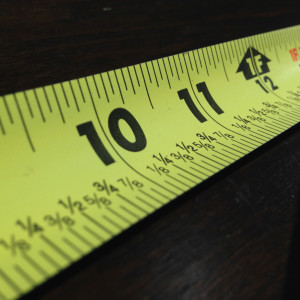 Earlier this month, I had the privilege of speaking with a woman from New York City who interviews entrepreneurs around the nation. Our talk only lasted about 45 minutes, but we covered a lot of ground, ranging from my explaining what RefuseOrdinary is all about, to sharing the highlights of our last family vacation to Tahoe. Just as we were about to wrap up, she asked a final question that caught me off guard:
Earlier this month, I had the privilege of speaking with a woman from New York City who interviews entrepreneurs around the nation. Our talk only lasted about 45 minutes, but we covered a lot of ground, ranging from my explaining what RefuseOrdinary is all about, to sharing the highlights of our last family vacation to Tahoe. Just as we were about to wrap up, she asked a final question that caught me off guard:
“Chris, what game-changing tip would you pass on to other business owners that helped you become more successful?”
Below is an excerpt from the conversation:
I can point to a single action that, not only changed how I look at success in my business, but how I look at success in my life. For as long as I can remember, the success of all my business ventures, (including RefuseOrdinary) were measured based on two specific metrics: revenue and growth.
Of course, revenue and growth are wildly important, but something sinister happens when these things are the sum total of what you care about. Exclusively focusing on money and growth always left me feeling anxious. I never experienced a sense of satisfaction with my achievements because there was always more money to be made and more growth to be had. I felt stuck on a treadmill and it left me feeling unfulfilled.
Of course, money and growth are cornerstones of a healthy company, and you’d better pay attention to it or you might find yourself driving all your hard work into the ground.
My new yardstick
About a year ago, it dawned on me that I’d do well to come up with a new yardstick for measuring my success. As I pondered several different ideas, my point of focus landed on part of RefuseOrdinary’s positioning statement and I considered how much of a difference our company was making—in my own life, first and foremost, in the lives of my clients, and in the community I serve. The more I thought about it, the clearer it was that this would be my new focus.
Devising a system for measuring “making a difference” was relatively easy, as I’d already outlined the basic steps to this process in a blog article called: Be BAD. In a nutshell, Be BAD offers a method for mapping out how to make a difference in your life and in the lives of people around you. Be BAD is an acronym for intentionally striving to Better oneself, to be Bold, to be Authentic, and to be Deliberate in your actions.
How I set it up
Throughout the week, each time I observed or recalled how RefuseOrdinary personally influenced me to be better, bolder, and more authentic, I noted it in a personal journal—pinpointing the deliberate actions involved. This practice raised my awareness of my everyday decisions and their impact on my state of mind and on my business.
I also kept track of similar interactions with my clients—encouraging them to Be BAD, and watched for results. In time, most of them saw significant gains in production and reported their lives seemed to be getting better and better! I chronicled each of these successes in my journal. A few of their stories even made their way into my blog articles.
I also apply the tracking and journaling method to my work with the communities I serve, and it is there I experience the greatest rewards. I sit on two very diverse boards here in Virginia—the Greater Williamsburg Tourism & Chamber Alliance Board of Directors and Stratford University’s Advisory Board for their Glen Allen campus. These groups allow me to interact with fellow business owners and business school students—the latter of which holds even greater meaning for me due to the potential for affecting the lives and careers of future generations of business leaders.
The result of this shift
When I first came up with the idea of revamping my concept of success, I’d hoped it would result in greater personal satisfaction and fulfillment, and it has done just that.
But something else happened as well—something wonderfully unexpected: By embracing the idea of making a difference as the benchmark for measuring success, RefuseOrdinary itself took on a whole new level of purpose for me. Our little company was no longer just a means to an end; it became a vehicle for helping people create an infinite amount of new beginnings in their lives—and that was a professional endeavor into which I could absolutely pour my heart and soul.




